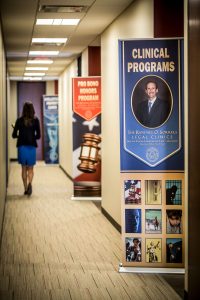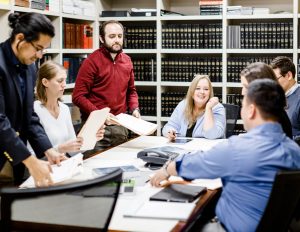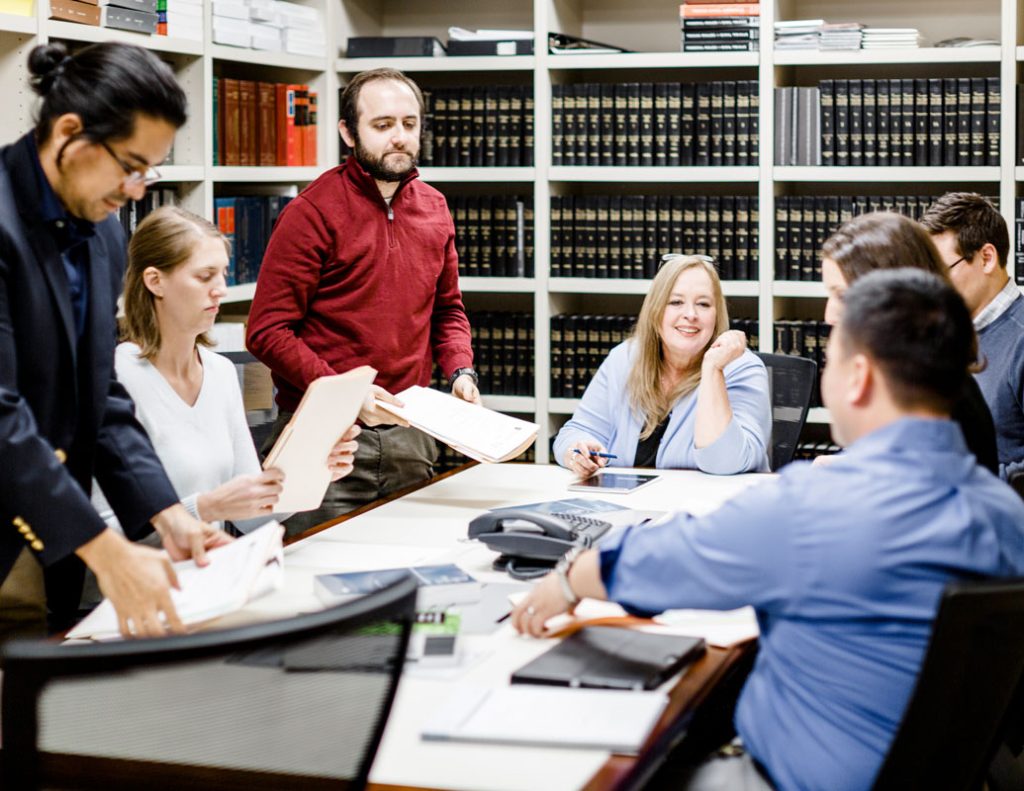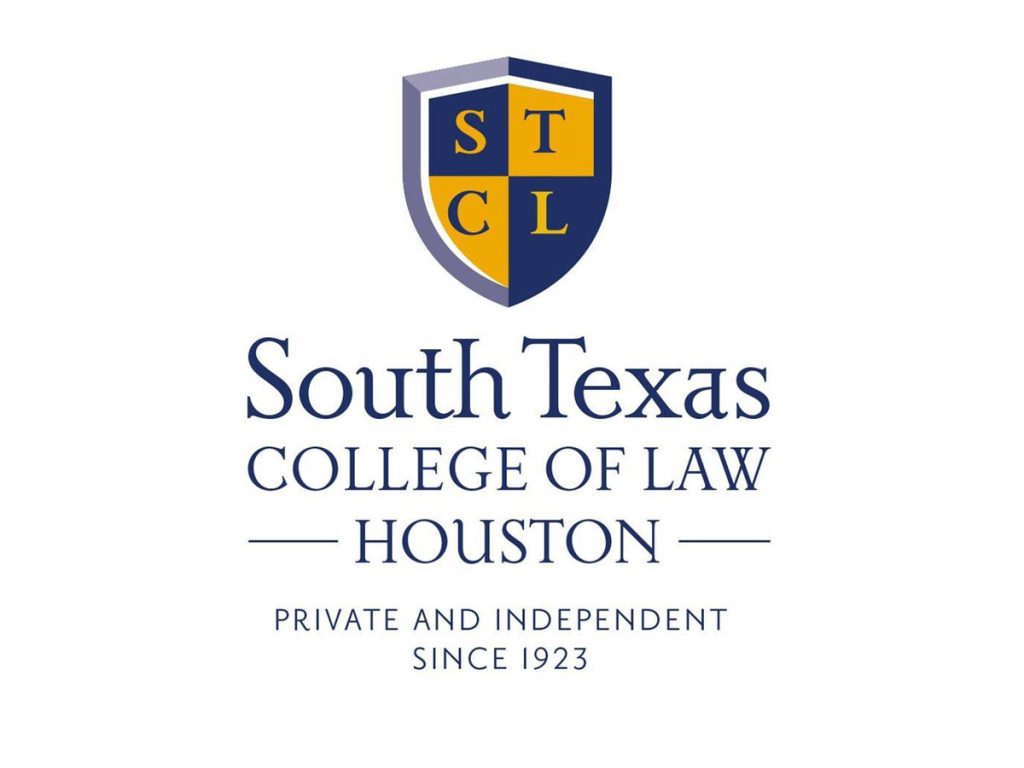 Stepping off the elevator and onto the tenth floor of South Texas College of Law Houston, visitors walk into a sleek professional space that houses the Randall O. Sorrels Legal Clinics, an academic clinical program combined with community-focused pro bono initiatives.
Stepping off the elevator and onto the tenth floor of South Texas College of Law Houston, visitors walk into a sleek professional space that houses the Randall O. Sorrels Legal Clinics, an academic clinical program combined with community-focused pro bono initiatives.
The clinics have come a long way since their humble beginnings in 1990, when an old tire store was converted for the then-novel initiative. The full scope of growth since that time is impressive, and the clinics’ impact on the community over the course of two decades is worth commemorating, even when the pandemic means waiting a while to enjoy a big celebration.
Two figures loom large in the clinics’ success: Catherine G. Burnett, Associate Dean for Experiential Learning, and Randall O. Sorrels, a Distinguished Alumni Award winner and generous benefactor for whom the clinics are named. Here they share their thoughts on the clinics, reminiscing on past achievements and looking forward to the future.
How the idea for the clinics started
According to Dean Burnett, the clinics “started out of a need to have a little more influence over the internship experience, which was excellent, but we wanted more control over academic content. With an internship, a student might not see the full life of a case. At the clinics, we could better support and strengthen that impulse to serve, which drives many of our students to enroll at South Texas in the first place.”
Serving the community’s needs
The first clinic started a precedent for the clinical program by identifying a specific community challenge and meeting that need. Dean Burnett stated that “We went to a local legal aid office and asked, ‘What’s the biggest need in the community?’ At the time, the Texas Supreme Court was conducting a listening tour, asking similar questions. Reviewing that data, we determined government benefits were a gap we could fill. Back then, for example, attorneys couldn’t claim a portion of a client’s social security award to cover legal fees, so many people in need went unrepresented.” All of the clinics offer free legal assistance to Houston area residents in need.
Finding a champion in Randy Sorrels
In 2012, alumnus Randy Sorrels created an opportunity for the clinics to expand through a generous donation that would allow the clinics to be housed within the law school’s walls. Sorrels saw that there was a need for access to justice that wasn’t being met, and saw an opportunity to help. “There are various organizations that provide access to justice, but they couldn’t do enough because the need is so great. Law students supervised by law professors help give people the opportunity to seek the justice they deserve but can’t afford.“ His donation paved the way for a complete remodel of the law school’s tenth floor, providing 15,000 square feet of space that includes a bull pen, interview rooms, and places for law students to meet.
Celebrating the clinic’s legacy, so far
 The clinic has grown to include 21 programs, ranging from family law to international process to animal law. As Mr. Sorrels says, “I’m proud of the growth of the clinics and the wide breadth of practice areas they now cover, and I think it’s probably the best clinic program in the state from a law school standpoint. We have great dedicated professors and energetic law students that help lots of people in need, boosted by a conducive environment and workspace at STCL.”
The clinic has grown to include 21 programs, ranging from family law to international process to animal law. As Mr. Sorrels says, “I’m proud of the growth of the clinics and the wide breadth of practice areas they now cover, and I think it’s probably the best clinic program in the state from a law school standpoint. We have great dedicated professors and energetic law students that help lots of people in need, boosted by a conducive environment and workspace at STCL.”
In addition to the many Houstonians the clinics have helped, they’ve made a difference for STCL Houston graduates, who carry their experiences with them in different ways. Many return to help. Dean Burnett points out that “We currently have former clinic students who are now on the faculty. Betty Luke is now a tenured faculty member, and Aimee Maldonado recognized a need for an Immigration Clinic at South Texas while she was still a student. We were so happy to bring Aimee back once the Immigration Clinic launched.”
There’s still more work to do
The need for public legal assistance isn’t slowing down. As Dean Burnett says, “In Texas, there’s one lawyer for every 400 Texans with money. There’s only one lawyer for every 11,000 pro-bono cases. With so many pressing social issues out there, people are in as much need of legal assistance, if not more, than when the clinics first started.”



